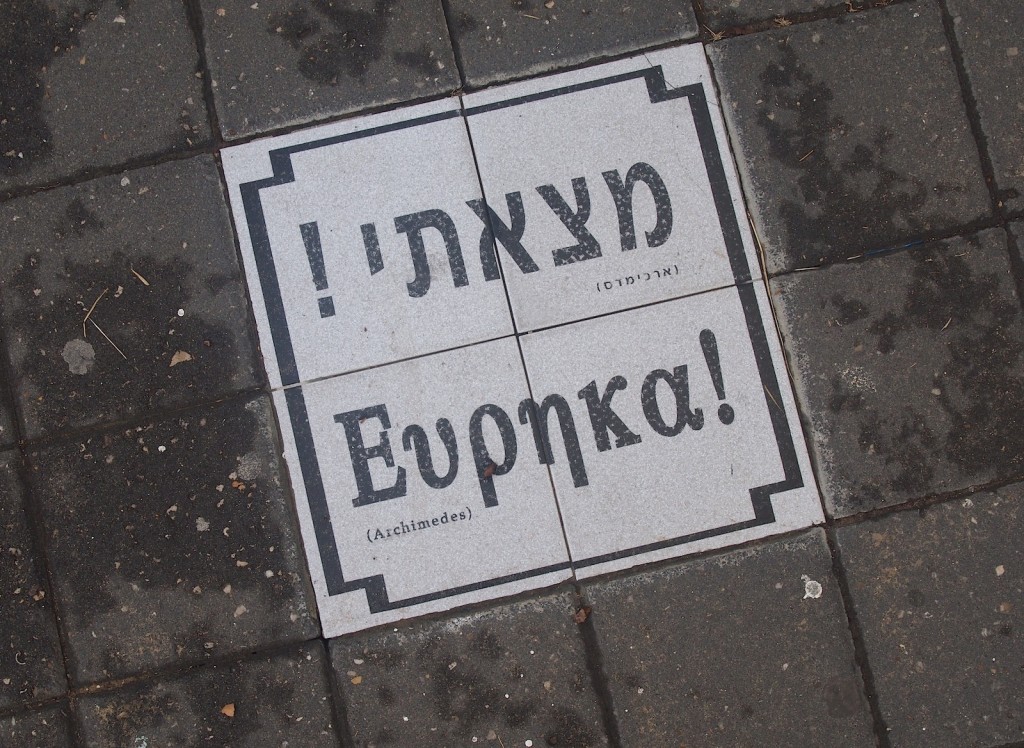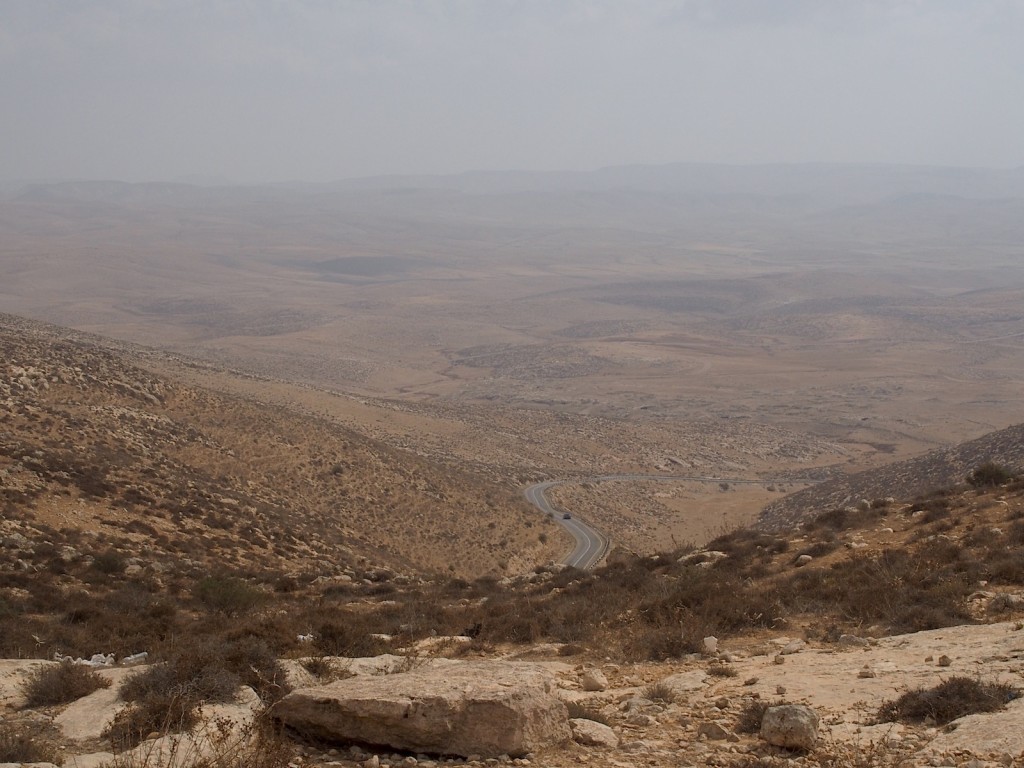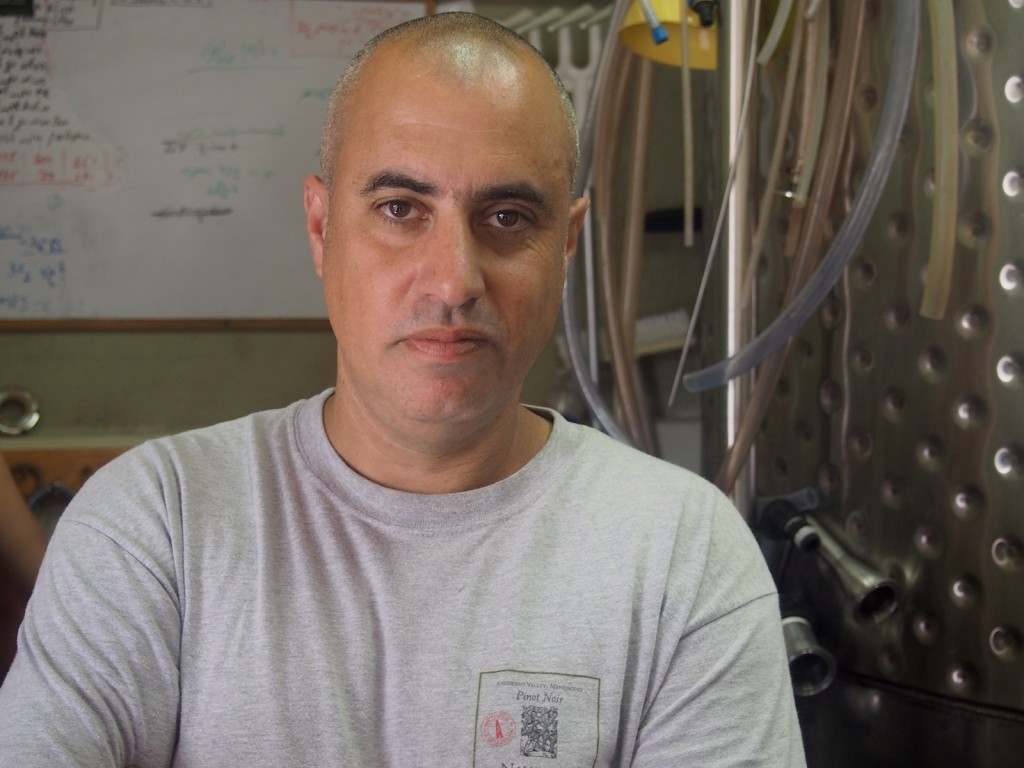I feel sure that, in spite of having tasted a slew of Israeli wines and met many Israeli winemakers since I arrived, I’m still a long way from having an overview of what is happening here, but there’s one thing that I’m already sure of, and that’s the impossibility of defining the genius of Israeli wine today with any kind of simple formula or definition. Something remarkable has happened here since the turn of the century, just as it did in Germany, but the (socio-cultural) context is utterly different and, of course, the winemaking conditions are too. The latter make one type of wine – genuinely light white wines – very difficult to produce, but apart from that this there are clearly enormous possibilities here and they are being explored in an ambitious and serious way. The result is an enormous range of interesting and exciting wines, some of which lie well outside what the description “Mediterranean wines” would lead you to expect.
Sure some Israeli red wines are massive, have plenty of alcohol and are seriously tannic, but during tastings I rarely felt that the wines had been overly-extracted. Instead, I encountered the normal range of wine styles and differences that variations in the growing conditions were responsible for (our old friend “terroir”). The truth is that red wines made by Eran Goldwasser at Yatir Winery, to take a prominent example, lie at the massive and tannic end of the scale because of the landscape in which they are grown. The photograph below was taken just a few miles away from the Yatir forest where those vineyards are situated. In this desert environment the summer days are hot, but temperatures plummet at night. Irrigation is essential for wine growing, but must be carefully judged, and great care must be taken that the grapes aren’t picked overripe. Eran Goldwasser has mastered this difficult discipline and his wines have a herbal freshness, and even the most concentrated of them still taste invigorating.
Then there are the elegant, dry reds from Flam winery that are clearly inspired by modern Tuscan red wines. That was particularly apparent in the ‘Classico’ red that had the red cherry aroma I associate with Chianti Classico, although the wine is mostly made from Cabernet Sauvignon (entirely from vineyards in the Judean Hills). Even the top red wine made by Golan Flam, the 2009 ‘Noble’ (mostly from Galilee), is not dominated by black fruit aromas and lacks any trace of inky density, remaining light on its feet. That really is a huge contrast to Yatir, although both wineries are largely using the same grape varieties.
Golan Flam is a thinker, and reminded me an architect or a mathematician. Assaf Paz of Vitkin winery, just a short drive from where I’m staying to the north of Tel Aviv is more like a rock star or a DJ, and it makes complete sense that his wines strike out in many directions that are unconventional for Israel. One of his best wines is the Old Vine Carignan, which is herbal and fruity, warm and mellow, yet weighs in at a moderate (in the Israeli context) alcoholic content of 13.5%. He’s not only obsessed by Mediterranean varieties like this, but also with making crisp and refreshing dry whites that have the maximum aroma intensity. One of those wines is Israel’s best dry Riesling, from the same vineyard as the sweet Sphera Riesling described in my previous posting. 2014 looks to be an excellent vintage for this wine, but also for Assaf’s Columbard dry white, which is packed with exotic aromas of a kind I never experienced in this “inferior” French variety before. The photo of Assaf below shows him in a quiet moment. I wish I could have captured the rock star-DJ Assaf in full flow, but maybe this page wouldn’t have been wide enough to accommodate that expansive personality.
Not every wine from all the winemakers I’ve described in my many postings from Israel has been optimized yet, but they are all on their way in that direction and this incompleteness and that dynamic make the nation and its winemakers irresistible to me. You can be sure that I will continue to follow this subject during the years to come. Israel has bitten me in the best possible way. Of course, this isn’t a nation without problems, and the long term future of this part of the Middle East is endangered by the conflicts between Israel and many of the Arab countries around it (Israel also has some serious internal conflicts). That is something I cannot ignore, but first I’m tasting the wines, talking to the winemakers and absorbing all the impressions of Israel that I can without falling into the trap of making hasty and simplistic judgments of this complex situation.




![120114_riesling_global_RZ [1600x1200]](http://www.stuartpigott.de/wp-content/uploads/2014/10/120114_riesling_global_RZ-1600x12009.jpg)
We will be happy to host you for wine tastings at our beautiful winery during your visit in Israel.. Please contact us:0502207022